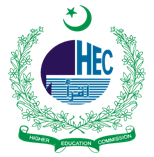“Bridging Borders: An In-Depth Exploration of Pakistan’s Role in Regional Security through the SCO”
Keywords:
Pakistan, Shanghai Cooperation Organization (SCO), Regional Security, Counter-Terrorism, Central Asia, ExtremismAbstract
The focus of this research paper is to establish Pakistan’s security contributions in the region by analyzing its interaction with the SCO. It was created in 2001 and has transformed into an important format of regional multilateral cooperation in the sphere of security and in various fields of economic and cultural ties. After joining the SCO in 2017, Pakistan has aimed to boost its power in Central Asia and; dealing with major security issues internally and regionally. counter-terrorism and preventing extremism is one of the paramount security areas in the SCO, this paper aims at analyzing Pakistan’s involvement in these issues. As terrorism and violent extremism are nowadays universal problems, the SCO’s Regional Antiterrorist Structure (RATS) offered a format of cooperation and information exchange for combined actions of its members. This paper will analyse how Pakistan has been involved in RATS and participated in counter terrorism efforts in the region. Besides, the paper shall also examine how Pakistan’s participation in the SCO affects stability of Central Asia. This study will employ qualitative method of data collection and analysis as well as secondary materials to reveal the areas that Pakistan finds difficult to implement the agreed SCO framework, political and hostile relation with India to name but a few, internal security. In conclusion, the paper will put forward suggestions to promote the position of Pakistan in the SCO, with particular emphasis on cooperation in the exchange of intelligence and partner states with the Central Asian countries. In conclusion, the presented research adds to the explanation of the security processes in Central Asia with regard to Pakistan’s interactions within the SCO framework.
Downloads
Published
Issue
Section
License
Copyright (c) 2024 Dr. Waseem Ullah, Dr. Saima Razzaq Khan, Dr. Imran Ullah Khan Marwat, Dr. Muhammad Umar, Dr. Asif Salim

This work is licensed under a Creative Commons Attribution-NonCommercial 4.0 International License.








